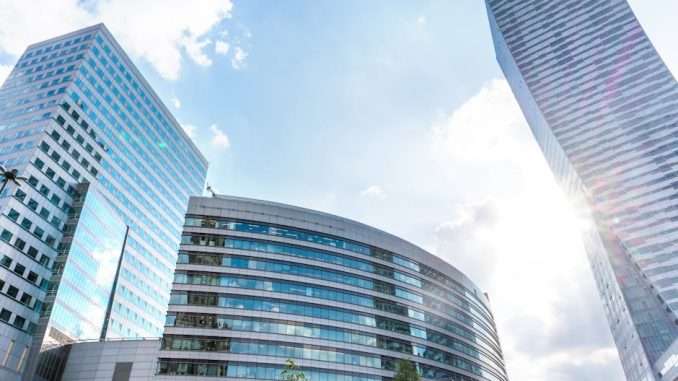
At the forefront of Poland’s urban evolution, a series of innovative projects in Warsaw and Silesia are redefining the country’s approach to workspace and industrial development. The emergence of the Diuna office complex in the capital, alongside Panattoni’s latest industrial park in the Silesian region, epitomizes a significant shift toward incorporating sustainability and innovation as core components of infrastructure, establishing new standards for the nation’s built environment.
In Warsaw, the Diuna office complex stands as a paradigm of modernity, a testament to eco-conscious and corporate sophistication. Under the management of Syrena Real Estate in partnership with PineBridge Benson Elliot, Diuna has rapidly become a magnet for businesses seeking cutting-edge and sustainable office settings. Marrying sleek architectural design with an array of state-of-the-art amenities, including shared workspaces and a fully-equipped conference center, the complex offers more than just offices – it delivers a comprehensive and immersive professional experience. The array of prestigious certifications Diuna boasts, such as BREEAM In-Use Silver, Well HSR Silver, and WiredScore Silver, underscores the complex’s dedication to sustainability. The conversion of a 6,000-square-meter parking lot into a public park illustrates a tangible commitment to enhancing urban green spaces.
The complex’s ecological ethos has proven attractive to innovative tenants like Intrum, Carrier Chlodnictwo, and WDX, all of which are drawn by its synthesis of energy efficiency and environmental mindfulness. Their tenancy reinforces Warsaw’s burgeoning reputation as a nexus for businesses that prioritize technological progress in harmony with ecological awareness. This movement underscores a wider preference among enterprises for locations that espouse both technological prowess and environmental stewardship.
Simultaneously, Silesia’s industrial landscape is being transformed by Panattoni’s ambitious industrial park initiative. The construction of 207,000 square meters of industrial space in Bedzin reflects a deep commitment to environmental and economic sustainability, aiming for a BREEAM Excellent certification. The industrial park boasts an array of sustainable features, from solar-ready roofs to operationally efficient designs.
Moreover, the Bedzin park is conceived with the health and well-being of its workforce at the core, featuring green spaces for relaxation, cyclist amenities, and electric vehicle charging points. Situated strategically within Silesia, Panattoni’s investment leverages the region’s ascending economic potential, as evidenced by the success of adjacent projects in Czeladz and Sosnowiec, thereby reinforcing the company’s significant regional footprint.
Both Warsaw’s Diuna office complex and Panattoni’s industrial park in Silesia exemplify a contemporary shift toward infrastructures that transcend mere functionality. They are environmentally attuned and technologically advanced, reflecting a broader commitment to the betterment of their surrounding communities. Diuna’s renovation efforts, which include modernizing communal spaces and decreasing carbon emissions, demonstrate the profound impact these developments have on enhancing urban environments. Similarly, Panattoni’s emphasis on renewable energy and thoughtful design heralds a new era for industrial efficiency and sustainability.
The story unfolding through these initiatives offers a glimpse into Poland’s future—a future that embraces sustainability, innovation, and advanced modernity. These projects are far more than structural edifices; they are the vanguard of a transformative shift in Polish infrastructure, signaling a new era where work environments and industrial facilities are emblematic of eco-friendly practices, technological advancement, and societal welfare.
By elevating the benchmarks for contemporary infrastructure, these projects illuminate the potential for development to foster environmental and economic benefits concurrently. They underscore Poland’s ambitious evolution toward becoming a hub of sustainable progress. The pioneering undertakings of Diuna and Panattoni serve as a compelling demonstration of the nation’s capacity for meaningful growth, embodying its dedication to a future where financial success and ecological balance are inextricably linked. As these spaces continue to mature, they set a precedent for Polish infrastructure that is as conscientious as it is transformative, offering a model for global emulation.


Be the first to comment